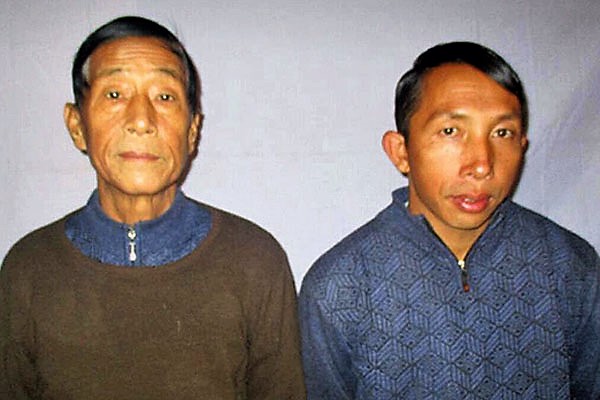Two Baptist pastors from Myanmar have received prison sentences for leading journalists to a church reportedly destroyed by military air strikes last year.
Dumdaw Nawng Latt, 65, was sentenced to four years and three months and his nephew, Langjaw Gam Seng, 35, to two years and three months, Oct. 27 under the country’s Unlawful Associations Act.
Both men are pastors in the Kachin Baptist Convention, a 300-church denominational body formed when American missionaries were forced to leave the country historically known as Burma by a military dictatorship that seized control in 1962.
A convention official told The Irawaddy, a magazine and website that covers news in Myanmar and Southeast Asia, the group plans to file an appeal seeking their unconditional release.
In January family members and Kachin Baptist leaders reported the men missing since Christmas Eve 2016, when they were summoned purportedly to assist with the release of civilians held at a military base.
Initially the government denied knowing their whereabouts, blaming their disappearance on rebel forces, but later the military handed the men over to police under a law left over from the era of British colonial rule on charges of working as “financial supporters, informers, recruiters, and rumor-mongers” for ethnic armed groups at war with Burma’s army since 2011.
Dundaw Naung Latt received an additional two-year sentence for defamation, stemming from remarks he made in media interviews deemed as criticizing the military.
Fortify Rights and Human Rights Watch, two human-rights organizations that led protests of their detention, called on authorities in Myanmar to drop all charges against the ministers.
“Two Kachin religious leaders are being prosecuted for exposing the military’s crimes,” said Matthew Smith, chief executive officer of Fortify Rights. “They should never have been locked up on these grounds in the first place.”
“Myanmar’s government should be prosecuting military personnel who are responsible for serious abuses — not activists who are bringing those abuses to light,” added Phil Robertson, deputy Asia director at Human Rights Watch. “Myanmar’s military has for decades violated the rights of the country’s ethnic minorities without ever having to fear being brought before a court.”
The conviction comes after nearly a year of legal proceedings stemming from an incident on Nov. 20, 2016, when the pastors led journalists to buildings damaged by clashes between government and rebel forces including a Catholic Church allegedly bombed by the Myanmar Air Force. The pastors also helped a human rights group investigate the incident on Dec. 9.
Kachin State is Myanmar’s northernmost state, bordering China and India. Since 2011 the region has seen extensive fighting between government forces and the Kachin Independence Army, the military wing of a political coalition of six ethnic tribes sharing a common language in the Kachin Hills, a forested group of highlands in Burma’s northeast corner.
Missionaries first engaged the Kachin people in 1877, 64 years after American Baptist missionary Adoniram Judson arrived in Rangoon, now known as Yangon, the largest city in Myanmar and the nation’s commercial and intellectual hub.
The Kachin Baptist Convention is one of 18 groups affiliated with the Myanmar Baptist Convention, a member body of the Baptist World Alliance reporting nearly a million members in more than 5,000 churches.
While elections in 2010 led to peaceful transition from 60 years of military rule, Burma’s road map to democracy has been challenged by factors including the reconciliation process between various ethnic groups and violations of human rights.
While Rohingya Muslims fleeing what they call ethnic cleansing in Myanmar are the latest humanitarian crisis demanding worldwide attention, one fourth of refugees entering the United States in the last 10 years are Christians from Burma. In 2007 American Baptist Churches USA and the Cooperative Baptist Fellowship jointly appointed missionaries to aid churches in helping Burmese refugees resettle in the states.
In some cases, the influx of refugees who are Baptists have reinvigorated once-declining congregations in cities across America.
Previous stories:

